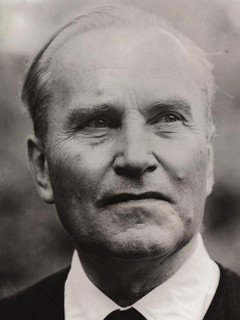
Publication details
Year: 2017
Pages: 89-106
Series: Labyrinth: An International Journal for Philosophy, Value Theory and Sociocultural Hermeneutics
Full citation:
, "The force of war", Labyrinth: An International Journal for Philosophy, Value Theory and Sociocultural Hermeneutics 19 (1), 2017, pp. 89-106.


The force of war
Max Scheler and Jan Patočka on the First World War
pp. 89-106
in: The Heretical Perspectives of Jan Patočka (1907-1977), Labyrinth: An International Journal for Philosophy, Value Theory and Sociocultural Hermeneutics 19 (1), 2017.Abstract
The First World War was both an historical and a philosophical event. Philosophers engaged in what Kurt Flasch aptly called "the spiritual mobilization" of philosophy. Max Scheler was particularly important among these "war philosophers", given that he was the one who penned some of the most influential philosophical writings of the First World War, among them Der Genius des Krieges und der Deutsche Krieg. As I aim to show, Max Scheler's war writings were crucial for Jan Patočka's interpretation of the First World War in the sixth of his Heretical Essays. However, the importance of Scheler's war writings goes far beyond the First World War for Patočka, since they offer Patočka a far-reaching interpretation of the 'excessive' character of the 20th century. As I will show through the example of Max Scheler, the German war philosophers succumbed to a dangerously romantic con- ception of "force" – and it is this ominous force, which Patočka takes to lie at the root of the increas- ingly excessive character of the 20th and 21st centuries.
Cited authors
Publication details
Year: 2017
Pages: 89-106
Series: Labyrinth: An International Journal for Philosophy, Value Theory and Sociocultural Hermeneutics
Full citation:
, "The force of war", Labyrinth: An International Journal for Philosophy, Value Theory and Sociocultural Hermeneutics 19 (1), 2017, pp. 89-106.


